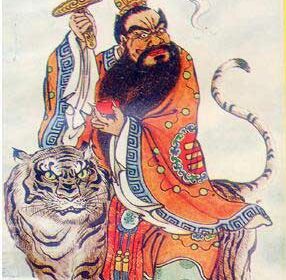The concept of Wu-Wei, literally “non-doing” or “not for any purpose”, came from “Dao De Jing” where it says “Therefore the Master acts without doing anything, and teaches without saying anything”, and “Practice not-doing, and
Read more

The concept of Wu-Wei, literally “non-doing” or “not for any purpose”, came from “Dao De Jing” where it says “Therefore the Master acts without doing anything, and teaches without saying anything”, and “Practice not-doing, and
Read more
Cheng_Fu, literally bearing the negative, means “cause and effect”.
Read more
“Wu” here refers to the fifth day by the “Tian Gan” time system.
Read more
It is also known as “Zheng-Yi-Jiao” or “Zheng-Yi-Pai”. Zheng-Yi Taoism was established in the 2nd century, at the time it was called Wu-Dou-Mi Taoism. During Yuan Dynasty, around 13th to 14th century, many different sects
Read more
Tai-Yi Taoism was created by Xiao Bao Zhen in the early Jin Dynasty. Tai-Yi Taoism believed in the concept of “One”, which means the real truth is one of ultimate purity. It emphasized that people
Read more
The words “Zhen Da” mean “True and Grand”. Zhen Da Daoism was also called “Da-Dao-Jiao” or the Grand Taoism. Zhen Da Taoism was created by Liu De Ren in the thirteenth century.
Read more
“Dou” is a fairly large container for measuring the volume of the grain. Wu-Dou-Mi means five Dou of rice. Wu-Dou-Mi Daoism is an important Daoism branch that was established by Zhang Daoling in East-Han Dynasty
Read more
Tai-Ping Daoism was an important early Taoism school created by Zhangjiao around 172 to 178 A.D. Tai-Ping Daoism took “Tai-Ping Jing” as its main classics. “Tai-Ping” means peace, “Tai-Ping Jing” means the “Classic of Peace”.
Read more
There are two kinds of “incense offering” rituals. One is performed by Dian-Zhu or the In-Charge of a Taoist Altar. In this kind of ritual, the Dian-Zhu will light three long incense sticks parallel to
Read more
“San-Zai” means “three disasters” which are the wind disaster, the fire disaster and the water disaster.“Ba-Nan” means “eight difficulties”.
Read more